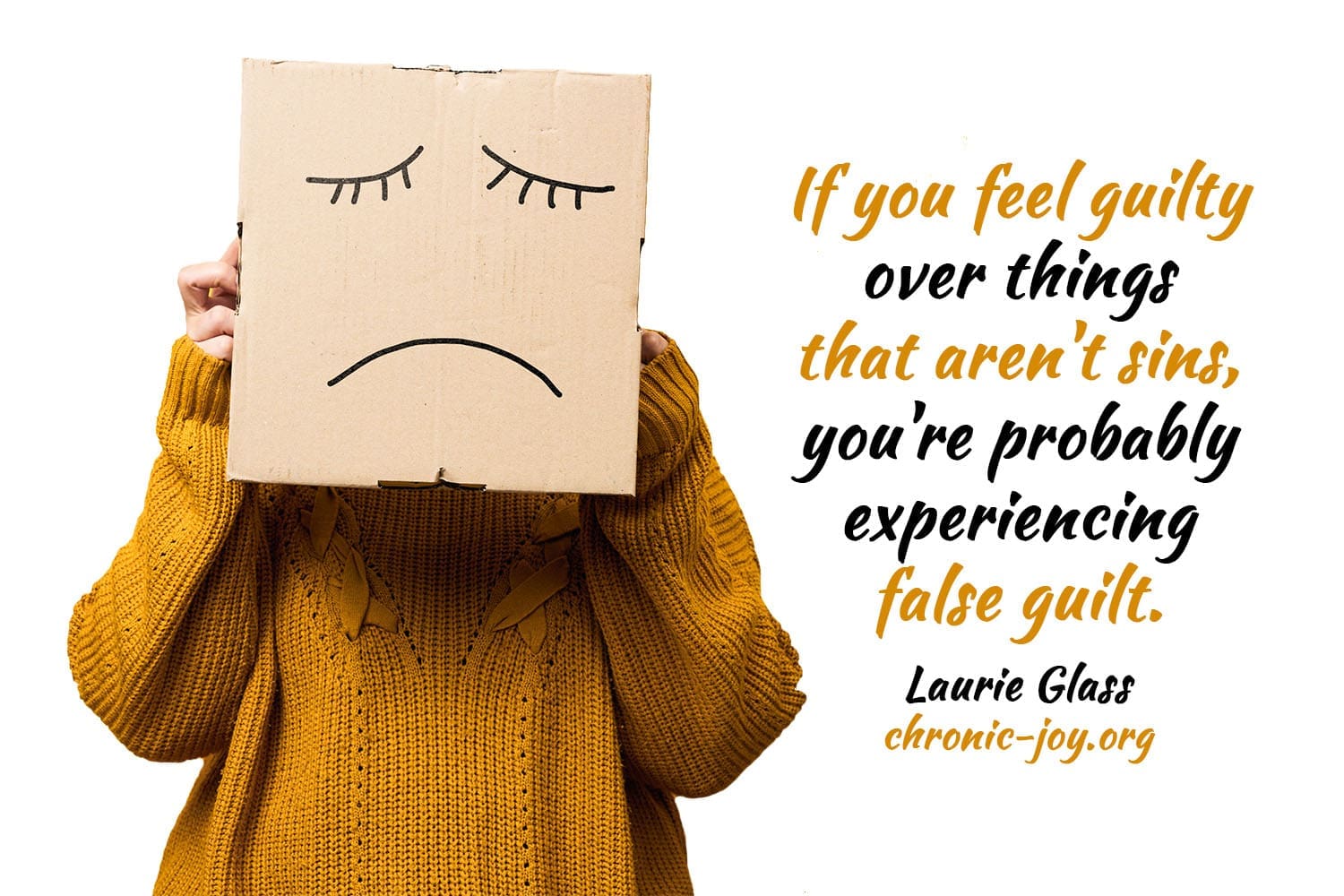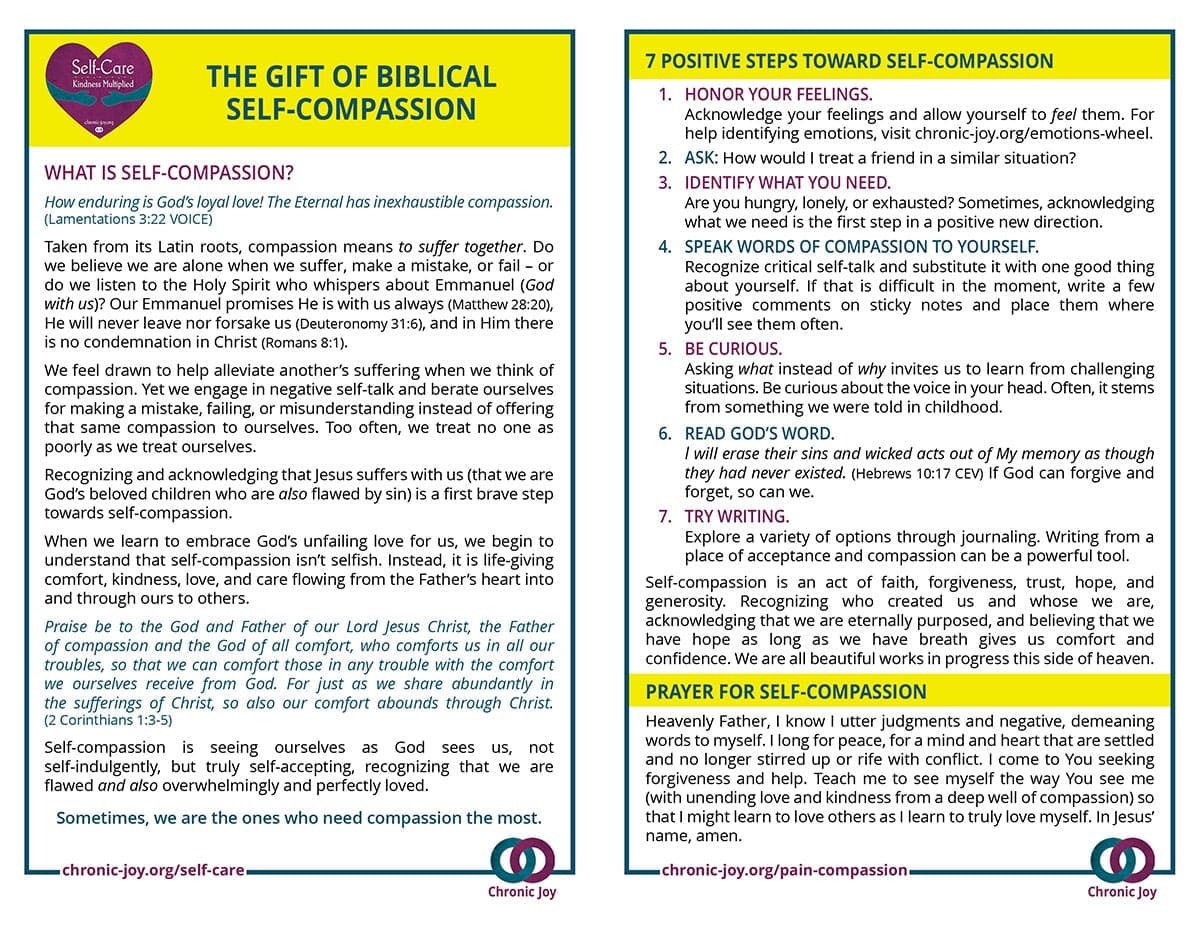
“If you feel guilty over things that aren’t sins, you’re probably experiencing false guilt.” (Laurie Glass)
If any of you lacks wisdom, you should ask God who gives generously to all without finding fault, and it will be given to you. (James 1:5)
IDENTIFYING FALSE GUILT
When you can’t do what you used to, miss important family events, can’t play the same role in relationships, or need help from loved ones, it’s easy to feel guilty. Unlike actual guilt that comes from wrongdoing, though, this is false guilt since you haven’t done anything wrong to deserve feeling this way. It occurs when you feel responsible, ashamed, or down on yourself for something you can’t control. False guilt can be draining and serves no useful purpose, so it’s essential to recognize it and find ways to let it go.
CAUSES OF FALSE GUILT
If you feel guilty over things that aren’t sins, you’re probably experiencing false guilt. There may be many things you feel guilty or ashamed about, but they aren’t things you did wrong. So, if sin doesn’t cause false guilt, what does? Here are some examples of causes of false guilt:
- Maybe you have an extra-sensitive conscience.
- You might have perfectionistic expectations of yourself.
- You may have a strong desire to please others.
- Do you carry a deep concern about what others think of you?
- Perhaps others have unrealistic expectations of you.
When you miss the mark in any of these scenarios, you feel guilty and ashamed over it. Honestly, explore the matter for yourself to discover the roots of your false guilt and shameful feelings. Consult with a counselor, ministry leader, or someone you trust and get support to address and resolve these causes.
EXAMPLES OF FALSE GUILT
To help you understand and identify false guilt, here are some examples of things for which you may feel false guilt. Even though you are not in the wrong, you might feel guilty or ashamed about things such as:
- resting or relaxing.
- canceling plans with a friend because something came up or you couldn’t physically meet.
- not being more like someone you know who deals with similar health issues.
- accidentally breaking something that belongs to someone else.
- needing physical help.
- others missing out on having you with them at events because you can’t attend.
- struggling to work through personal issues.
These are some examples of why you might feel guilty or ashamed. They are offered in the hopes that you can learn to recognize them. Once you’ve identified any false guilt you may carry, consider the following suggestions to let go of it.
SUGGESTIONS FOR LETTING GO OF FALSE GUILT
- SEEK WISDOM
Ask God for discernment regarding guilt. Remember that actual guilt’s purpose is to move you to confession, repentance, and a greater reliance on the Lord. False guilt isn’t useful. - MAKE AMENDS
Attempt to make things right in areas of false guilt. There may be something you can do to try to repair the situation – like offering to replace a broken item or rescheduling plans for another day. If so, go ahead and do that. Then recognize that’s all you can do, doing your best is all anyone can expect, and strive to be okay with that. - LET GO
Give your false guilt (and shameful feelings) to the Lord. Picture yourself getting rid of it: pick it up and carry it to Him, throw it off, bury it, or talk back to it and tell it to take a hike – whatever is most effective for you. The main thing is to let it go so you can get out from under its effect on you. This false guilt may have been there for a long time and may have deep roots, so it might take several attempts to release it successfully. - BE REALISTIC
Leave behind unrealistic expectations of yourself. While it is disappointing not to be able to do what you wish you could, it’s important to be fair to yourself and discern what you can do now. You know you would do more if you were able. - ACCEPT
Work toward acceptance of your limited capabilities. This does not mean you don’t want or aren’t trying to get better. It means working within your current reality unless or until things change. - GIVE GRACE.
Treat yourself with grace. While doing your best, cut yourself some slack when needed. - PERMIT YOURSELF TO SAY “No.”
Even though it may be tough to do, there are situations where it’s perfectly acceptable to say “No.” Work toward letting yourself do that and being okay with it.
- Learn to discern between true guilt and false guilt.
- Practice letting go of false guilt and shameful feelings until they roll right off you.
- Walk away lighter.
Letting go of false guilt is one way to practice self-care. See the Self-Care for Your Emotions and Mind printable for more ways to practice self-care.


Laurie Glass
Chronic Joy® Staff Writer
Laurie has a Master's Degree in Christian Counseling and is the author of Coping with ME/CFS. Many of her poems and articles have been published in print and online. She won the Open Medicine Foundation poetry contest in 2019. Laurie loves to use her gift of writing to encourage others. Her book is available on Amazon.

The Gift of Biblical Self-Compassion
Recognizing and acknowledging that Jesus suffers with us (that we are God’s beloved children who are also flawed by sin) is a first brave step towards self-compassion.

Recent Comments